第21章
Superstitious people are fond of the reliques of saints and holy men, for the same reason, that they seek after types or images, in order to enliven their devotion, and give them a more intimate and strong conception of those exemplary lives, which they desire to imitate. Now it is evident, that one of the best reliques, which a devotee could procure, would be the handywork of a saint; and if his cloaths and furniture are ever to be considered in this light, it is because they were once at his disposal, and were moved and affected by him; in which respect they are to be considered as imperfect effects, and as connected with him by a shorter chain of consequences than any of those, by which we learn the reality of his existence.
Suppose, that the son of a friend, who had been long dead or absent, were presented to us; it is evident, that this object would instantly revive its correlative idea, and recall to our thoughts all past intimacies and familiarities, in more lively colours than they would otherwise have appeared to us. This is another phaenomenon, which seems to prove the principle above mentioned.
We may observe, that, in these phaenomena, the belief of the correlative object is always presupposed; without which the relation could have no effect. The influence of the picture supposes, that we our friend to have once existed. Contiguity to home can never excite our ideas of home, unless we that it really exists. Now Iassert, that this belief, where it reaches beyond the memory or senses, is of a similar nature, and arises from similar causes, with the transition of thought and vivacity of conception here explained. When I throw a piece of dry wood into a fire, my mind is immediately carried to conceive, that it augments, not extinguishes the flame. This transition of thought from the cause to the effect proceeds not from reason. It derives its origin altogether from custom and experience. And as it first begins from an object, present to the senses, it renders the idea or conception of flame more strong and lively than any loose, floating reverie of the imagination. That idea arises immediately. The thought moves instantly towards it, and conveys to it all that force of conception, which is derived from the impression present to the senses. When a sword is levelled at my breast, does not the idea of wound and pain strike me more strongly, than when a glass of wine is presented to me, even though by accident this idea should occur after the appearance of the latter object? But what is there in this whole matter to cause such a strong conception, except only a present object and a customary transition of the idea of another object, which we have been accustomed to conjoin with the former? This is the whole operation of the mind, in all our conclusions concerning matter of fact and existence; and it is a satisfaction to find some analogies, by which it may be explained. The transition from a present object does in all cases give strength and solidity to the related idea.
Here, then, is a kind of pre-established harmony between the course of nature and the succession of our ideas; and though the powers and forces, by which the former is governed, be wholly unknown to us; yet our thoughts and conceptions have still, we find, gone on in the same train with the other works of nature. Custom is that principle, by which this correspondence has been effected; so necessary to the subsistence of our species, and the regulation of our conduct, in every circumstance and occurrence of human life.
Had not the presence of an object, instantly excited the idea of those objects, commonly conjoined with it, all our knowledge must have been limited to the narrow sphere of our memory and senses; and we should never have been able to adjust means to ends, or employ our natural powers, either to the producing of good, or avoiding of evil. Those, who delight in the discovery and contemplation of , have here ample subject to employ their wonder and admiration.
I shall add, for a further confirmation of the foregoing theory, that, as this operation of the mind, by which we infer like effects from like causes, and , is so essential to the subsistence of all human creatures, it is not probable, that it could be trusted to the fallacious deductions of our reason, which is slow in its operations; appears not, in any degree, during the first years of infancy; and at best is, in every age and period of human life, extremely liable to error and mistake. It is more conformable to the ordinary wisdom of nature to secure so necessary an act of the mind, by some instinct or mechanical tendency, which may be infallible in its operations, may discover itself at the first appearance of life and thought, and may be independent of all the laboured deductions of the understanding. As nature has taught us the use of our limbs, without giving us the knowledge of the muscles and nerves, by which they are actuated; so has she implanted in us an instinct, which carries forward the thought in a correspondent course to that which she has established among external objects; though we are ignorant of those powers and forces, on which this regular course and succession of objects totally depends.
* * * *